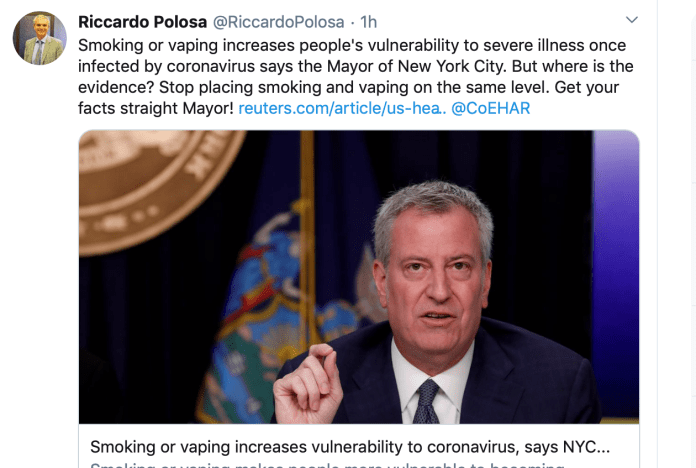There is no association between vaping and greater chances to contract Covid-19. Those the results of a research conducted at Mayo Clinic, which analyzed a sample of 70,000 patients based on their consumption of different nicotine-based products. The goal was to detect if and which types of tobacco could lead to a greater risk of contracting a SARS-CoV-2 infection.
The findings also revealed that smokers are less exposed to the risk of Covid-19 infection, including users of electronic cigarettes.
Excellent news, which reverses the narrative carried out during the first phase of the pandemic, when eminent international newspapers such as the New York Times, USA Today, and CNN published the wrong news that using electronic cigarettes could increase the chances of being infected by SARS-CoV-2.
Still, the damage had already been done. Last year there was a drastic drop in sales – and therefore the adoption of safer alternatives – of electronic cigarettes due to this narration.
The study that caused the groundless wave of fear was conducted by the Stanford University and published in the Journal of Adolescent Health. The research, based on a sample of 4,351 people between the ages of 13 and 24 who habitually used e-cigarettes, stated that those are “five times more likely to have a positive diagnosis of COVID-19.”
Despite the good intentions of the study (it was at an early stage of the pandemic and with little and uncertain information about the virus), many scientists criticized the relatively small and highly under-representative sample of the total population. Among these, Prof. Riccardo Polosa, founder of the Center of Excellence for the Acceleration of the Harm Reduction (CoEHAR) of the University of Catania, who last March replied to the Mayor of New York De Blasio, which supported the conclusions of the Stanford research.

On that occasion, Prof. Polosa went straight to the point by affirming the lack of scientific basis to support De Blasio’s statements. Following analysis conducted by different institutes confirmed the words of the Italian scientist.
“Although smoking has been shown to increase susceptibility to respiratory infections from bacterial and viral pathogens, and quitting smoking appears to reduce the risk of respiratory infection, the same does not apply to vape,” Polosa added.
According to the study, behind the trend the pressure exerted on newspapers and journalists to publish interesting results, a situation that also affects academics in search of funds and prestige.






